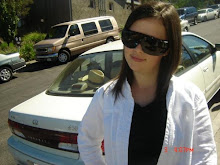When Breakfast at Tiffany's was first published in 1958, Time magazine described its heroine, Holly Golightly, as "the hottest kitten ever to hit the typewriter keys of Truman Capote. She's a cross between a grown-up Lolita and a teen-age Auntie Mame...alone and a little afraid in a lot of beds she never made." Of all his characters, Capote later said, Holly was his favorite, and it is easy to see why. This wacky hillbilly-turned-playgirl who lives in a Manhattan brownstone shares not only his philosophy of freedom and acceptance of human irregularities but also his fears and anxieties -- "the mean reds" she calls them. For her the cure is to jump into a taxi and head for Tiffany's; nothing bad could happen, she says, amid "that lovely smell of silver and alligator wallets," and her dream is to have breakfast in that soothing setting. "Holly Golightly is outre, funny, touching -- and real," remarked The Atlantic.
This is from the book jacket. It's not a plot summary per se, but I think it's great.
Relief! I really loved it. I had heard somewhere that they had to change a lot to adapt the book into a film, so I wasn't sure what to expect. I thought it might be grittier. But it was actually a really faithful adaptation, I even recognized some of the dialogue. The changes they made worked for the new medium very well. They changed the ending but really had to -- the novella ending is probably more true to life, but the movie ending is more satisfying and people can walk away happy, it feels more like an ending.
Side note: I didn't like the use of the n word, but I have a feeling it was accurate for the time and place/context.

Breakfast at Tiffany's is the first book of Truman Capote's that I've read, and I'm not sure if I will read more of his work... all I really need to know about Capote, I think I do:
1. he wrote this novella
2. he was the basis for Dill in To Kill a Mockingbird
3. he was in Murder by Death
Although I bet a biography of his celebrity years would be full of dish... and I do love reading about the scandals of New York society. (I'm kidding a little bit -- I saw the movie Capote, which doesn't really make the case for his being a nice person, you know? I think that's why I would be hesitant to delve more into his work.)
And a final note: both the book and the movie can make you feel a bit sad about life, which I HATE, but I really like them more for feeling of the time, the glamour and clothes, and the lexicon, you know? I don't think that either will give you a case of the "mean reds," but consider yourself forewarned.



No comments:
Post a Comment